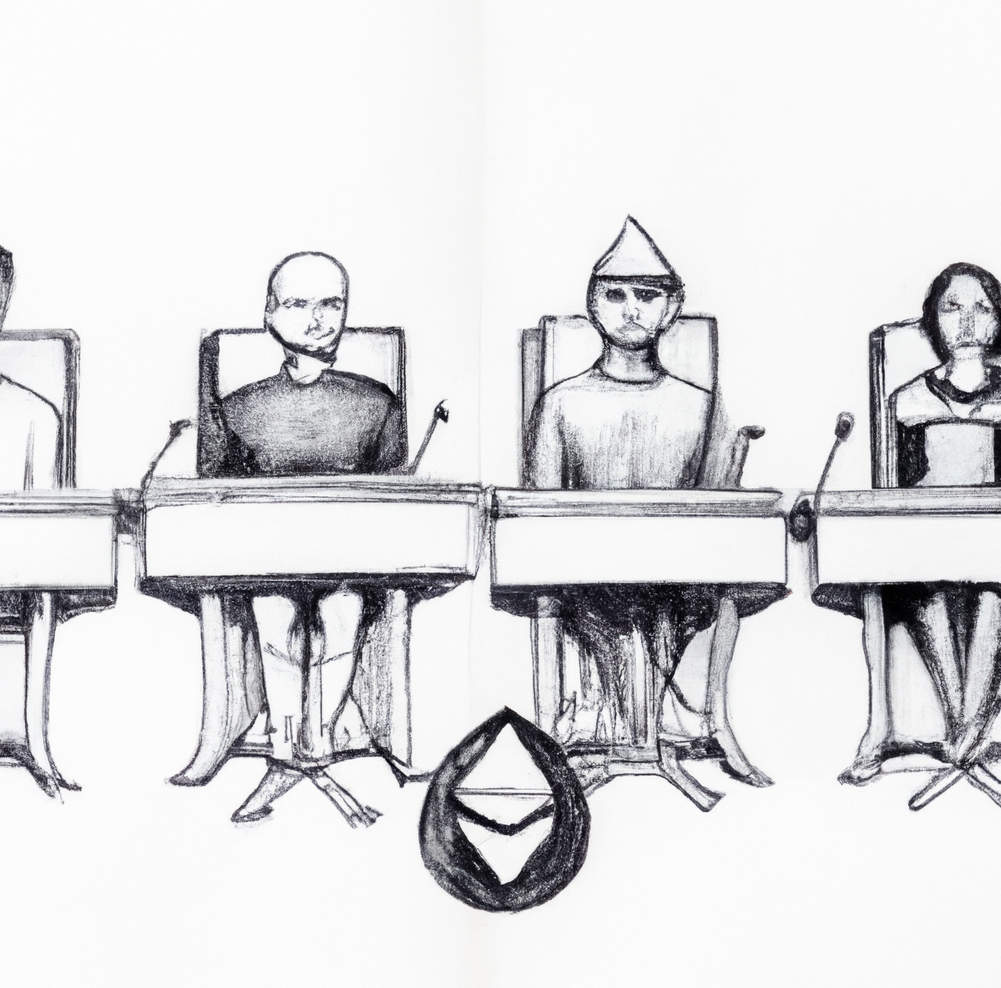Introduction
In a significant decision for the cryptocurrency community and the broader realm of digital assets, the United States Court of Appeals reversed the Department of the Treasury’s sanctions against Tornado Cash, a cryptocurrency mixing service. The court held that Tornado Cash’s immutable smart contracts are not “property” under the International Emergency Economic Powers Act (IEEPA), thereby limiting the Office of Foreign Assets Control’s (OFAC) authority to sanction such decentralized software.
This ruling in Van Loon v. Department of the Treasury not only clarifies the legal boundaries of governmental power over decentralized technologies but also underscores the complexities at the intersection of national security, privacy, and emerging digital innovations.

Background of the Case
Parties Involved
- Plaintiffs-Appellants: Joseph Van Loon, Tyler Almeida, Alexander Fisher, Preston Van Loon, Kevin Vitale, and Nate Welch—users of Tornado Cash seeking to protect their privacy in cryptocurrency transactions.
- Defendants-Appellees: The Department of the Treasury, OFAC, Secretary Janet Yellen, and OFAC Director Andrea M. Gacki.
Tornado Cash and Its Functionality
Tornado Cash is a decentralized cryptocurrency mixing service operating on the Ethereum blockchain. It enhances transaction privacy by pooling funds from multiple users, making it difficult to trace individual transactions. The service employs smart contracts—self-executing contracts with the terms directly written into code—that are immutable, meaning they cannot be altered or controlled once deployed.
OFAC’s Sanctions
In August 2022, OFAC designated Tornado Cash as a sanctioned entity under IEEPA, alleging that it facilitated money laundering activities, including those by the North Korean Lazarus Group—a cybercriminal organization linked to significant cryptocurrency thefts used to fund weapons programs. OFAC’s designation included 53 Ethereum addresses associated with Tornado Cash’s smart contracts, effectively prohibiting U.S. persons from interacting with them.
Legal Arguments and District Court Decision

The plaintiffs argued that OFAC exceeded its statutory authority by sanctioning open-source software rather than specific individuals or entities misusing the software. They contended that:
- Tornado Cash is not a foreign “national” or “person” as defined under IEEPA.
- Immutable smart contracts are not “property” because they cannot be owned or controlled.
- Tornado Cash cannot have a property “interest” in the smart contracts, as they operate autonomously without any central ownership or control.
The district court ruled in favor of the Department of the Treasury, holding that:
- Tornado Cash is an “entity” that can be considered a “person” under IEEPA.
- The smart contracts are “property” in which Tornado Cash has an interest.
- OFAC’s designation was within its authority to block property related to foreign threats.
Court of Appeals Decision

Upon appeal, the United States Court of Appeals reversed the district court’s decision. The key points from the appellate court’s ruling are:
Definition of “Property”
The court emphasized the traditional legal understanding of “property” as something that can be owned, controlled, and from which others can be excluded. Immutable smart contracts, by their nature, cannot be owned or controlled by any party once deployed. They exist perpetually on the blockchain, accessible to anyone, and are not subject to alteration or possession.
Immutable Smart Contracts Are Not “Property”
The court concluded that:
- Immutable smart contracts are not property under IEEPA because they lack the essential attributes of property—ownership and control.
- The smart contracts do not constitute “services” as they operate automatically without human intervention or the provision of labor.
- There is no contractual relationship inherent in the use of immutable smart contracts, as they do not involve an agreement between parties, which is a fundamental aspect of a contract.
OFAC’s Authority Is Limited
By designating the immutable smart contracts as sanctionable property, OFAC exceeded its statutory authority under IEEPA. The court underscored that:
- The statutory language of IEEPA does not extend to autonomous, immutable code that cannot be owned or controlled.
- Expanding the definition of “property” to include such code would require legislative action by Congress, not executive or judicial reinterpretation.
Implications of the Ruling

For Cryptocurrency and Blockchain Technology
The decision is a pivotal affirmation of the decentralized nature of blockchain technology. It recognizes that certain elements of blockchain ecosystems—like immutable smart contracts—operate independently of any individual or entity and thus fall outside traditional legal frameworks governing property and ownership.
This ruling may encourage innovation in the blockchain space by providing clearer boundaries regarding governmental authority and the regulation of decentralized protocols.
For Privacy and Anonymity Tools
The court’s acknowledgment of lawful uses for privacy-enhancing tools like Tornado Cash is significant. It balances the government’s interest in preventing illicit activities with individuals’ rights to privacy in their financial transactions.
However, the decision does not preclude regulatory actions against individuals or entities that misuse such tools for unlawful purposes. It delineates the limits of sanctioning the tools themselves when they operate autonomously and without ownership.
For Governmental Regulatory Authority
The ruling serves as a judicial check on executive authority, emphasizing adherence to statutory language. It signals to regulatory agencies like OFAC that their powers have defined limits, particularly concerning emerging technologies that do not fit neatly within existing legal definitions.
Potential Legislative Responses
Given the court’s interpretation, there may be calls for legislative action to address gaps in existing laws related to digital assets and decentralized technologies. Congress may consider amending statutes like IEEPA to explicitly cover certain aspects of blockchain technology if deemed necessary for national security.
Analysis
Balancing National Security and Technological Innovation
The case underscores the tension between national security concerns and the promotion of technological innovation. While the government has a vested interest in curbing money laundering and cybercrime, especially involving hostile foreign actors, overly broad regulatory actions can stifle innovation and infringe on lawful activities.
The court’s decision reflects a careful consideration of these competing interests, ensuring that measures to protect national security do not overreach into areas beyond the statutory authority.
The Nature of Decentralization and Legal Frameworks
Immutable smart contracts challenge traditional legal notions of control, ownership, and liability. The decentralized and autonomous nature of these technologies requires a reexamination of legal definitions and regulatory approaches.
This ruling highlights the need for the legal system to adapt to technological advancements thoughtfully, recognizing the unique characteristics of decentralized systems while maintaining the rule of law.
Precedent for Future Cases
The decision sets a precedent for how courts may interpret similar cases involving decentralized technologies. It may influence future litigation where the government’s regulatory reach intersects with autonomous digital tools, prompting careful judicial scrutiny of statutory interpretations.
Conclusion

The appellate court’s reversal in Van Loon v. Department of the Treasury marks a landmark moment in the legal treatment of decentralized blockchain technologies. By holding that immutable smart contracts are not “property” under IEEPA, the court has clarified the limits of governmental authority in sanctioning decentralized, autonomous software.
This ruling has significant implications for the cryptocurrency industry, privacy rights, and the future of digital asset regulation. It underscores the importance of aligning legal frameworks with technological realities and respecting the boundaries of statutory authority.
As the landscape of digital assets continues to evolve, this decision will serve as a critical reference point for legislators, regulators, and the judiciary in navigating the complex interplay between innovation, privacy, and security.


